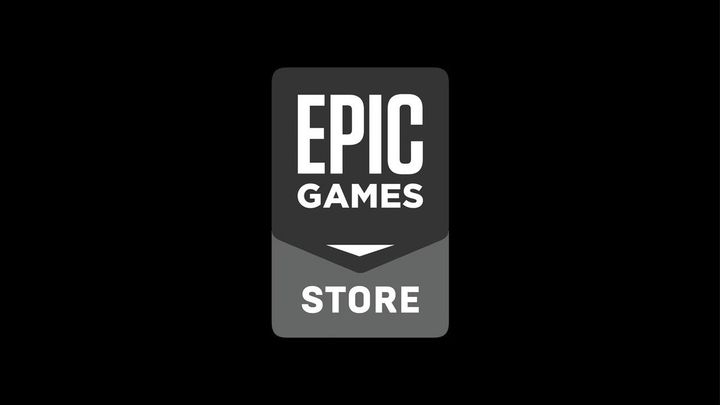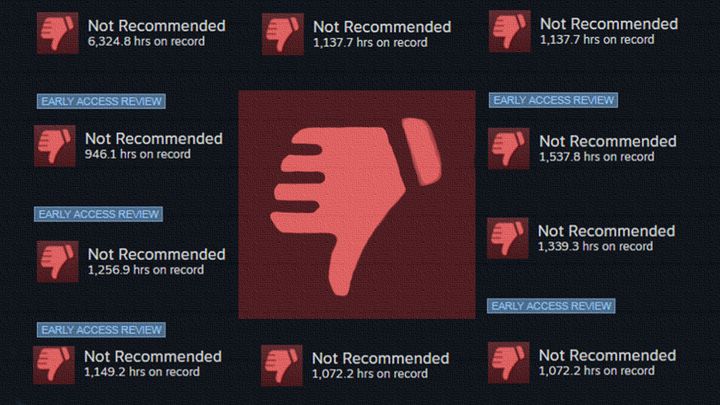Steam Spy creator explains how the Epic Games Store gets influencers
Sergey Galyonkin, the director responsible for preparing the Epic Games Store's publishing strategy, presented a lot of information about the backstage of the platform.

IN A NUTSHELL:
- The Epic Games Store features a system that allows the developers to promote their games through influencers;
- The promoters of the title receive a share of the profits from sales each time someone buys the game using a link they provided;
- The EGS takes a different approach to user reviews and sales;
- The store will receive a number of new features and improvements in the future, such as cloud saves and social features.
Sergey Galyonkin – known primarily as the creator of the SteamSpy service, and currently responsible for the Epic Games Store publishing strategy – introduced us to a few principles of the platform's approach to customers and influencers (e.g. popular youtubers). The explanations were presented in the Russian-language podcast How Games Are Made, the contents of which were then translated by users of the ResetEra message board.
Relations with influencers and their role in the system
Thanks to the podcast, we learned the details of the Support-A-Creator system, which allows Epic Games Store to acquire influencers. They receive game codes, with special links enabling them to recommend a given title. If someone buys the game, the Influencer receives a certain amount of money – a percentage of the sale. The revenue is dependent only on the developer, with the base value being 5%. Interestingly, currently the costs are covered by Epic Games, but only up to the aforementioned basic value (if the margin exceeds 5%, the rest has to be covered by the developer). It is not a permanent solution either – after 24 months (most likely the first two years of the platform's operation), the creators will have to pay the whole amount.
The system is fully automated and allows game developers to send keys to whole groups of influencers they have found suitable for the promotion of the game. A number of criteria and filters are used here. Contact with the gaming press is maintained in a similar way (with the difference obviously being that the journalists do not receive promo links and do not earn money on the game sales). The supervisor of the platform, however, does not allow for individual contact with individual youtubers – the studios can do it on their own, but Epic Games Store does not offer such a feature.

Homepage and discovering games
Influencer promotion plays a key role in Epic Games Store as it is intended to be one of the basic ways to introduce new games to users – titles are to be discovered outside of the platform and not on it. Galyonkin argues that we generally know what we want to buy even before we open Steam and it's hard not to agree with him.
The homepage of the store will display information about new and recommended games, but it will be managed by an algorithm, not a human – so we can't be sure whether our title will even appear on it. Additionally, the platform is to display a section of news to each client, in which we will find information about the games we are interested in. By default, this applies to the games we have bought, but in the future we will be able to "follow" other titles and even developers. Over time, this part of the site will also show “what our friends did / bought" – which may be another way to reach new customers.
Reviews, Sales, and new features
Epic Games has a slightly different approach to user reviews than Valve. The company wants to avoid "review bombing", i.e. posting of negative opinions by people who haven’t really had too much contact with a given title (the reason may be, for example, media controversies, dislike towards the developer or frustration associated with an extremely difficult section of the game). Therefore, developers of games available on EGS will have to agree to being evaluated by customers. The shop supervisor is also considering a number of ideas to improve the credibility of reviews – for example, the option of giving the game a rating would only come up when we leave the game.
The Epic Games Store platform will also receive several useful new features in the future. Galyonkin openly admits that until now the company’s programmers have focused mainly on solutions and tools useful to developers. Now the focus will shift towards customers. Among other things, we will be able to save our games in the cloud (probably as early as February this year), limit the download speed and run games from outside of EGS in the client. We will also get a number of social features (e.g. player profiles, friend lists). Epic is also considering some form of mod support in the vein of Support-A-Creator – the company does not want to sell mods, but would like the creators of this type of content to benefit from creating it.

Epic Games also has a slightly different approach to the issue of sales. The company does not intend to organize huge discount campaigns, for which Steam is known – according to Sergey Galyonkin, they have a negative impact on the sales of all other titles not covered by the promotion. Sales will appear on the platform, but they will be limited in numbers, and information about them will be displayed next to those related to other games (releases, etc.).
What does this mean for developers and clients?
The EGS discount system appears to be a fine-tuned machine that can make the grade. At the same time, however, the emphasis on content promotion through influencers means that developers – including small, independent studios – will have to give up part of the profit in order for their product to be visible and promoted. In the case of Steam – thanks to the algorithm and the freedom of commenting and reviewing by users – the basic visibility is higher. In practice, therefore, the allegedly large gap between the revenue on Steam and Epic Games Store may not be as great as we might think, although much will resolved case by case.

The idea of "buying" influencers for a part of the profit from game sales may also raise doubts. On one hand, as Galyonkin points out, publishers already allocate huge amounts of money for this purpose – they simply do it on their own and behind the scenes (usually in the form of one-off contracts for a specific sum of money). Epic wants to automate the process and offer this possibility to companies that do not yet have the right contacts in the industry. On the other hand, I have doubts whether the players will like such extent of paid promotion and association of youtubers with publishers, especially because the profits of influencers from sales can reach even 100%.
It is also hard not to get the impression that EGS’ main argument at the moment is not the quality of the provided services and offers, but bags of gifts and money, which are thrown at literally everyone – from players, through developers and publishers and all the way to youtubers. In the short term, it is probably an effective strategy. But what will happen when profits streaming from Fortnite will wane and the money begins to run out?
- „Prices should have dropped, but they haven't.” Tim Cain says corporations pocketed players' money saved on digital games
- 72% of game developers think Steam is a monopoly. However, they have one good reason to keep using it
- The Witcher creators were looked down upon within their own company. „We were like weird people living in a cellar”
0
Latest News
- End of remote work and 60 hours a week. Demo of Naughty Dog's new game was born amid a crunch atmosphere
- She's the new Lara Croft, but she still lives in fear. Trauma after Perfect Dark changed the actress' approach to the industry
- „A lot has become lost in translation.” Swen Vincke suggests that the scandal surrounding Divinity is a big misunderstanding
- Stuck in development limbo for years, ARK 2 is now planned for 2028
- Few people know about it, but it's an RPG mixing Dark Souls and NieR that has received excellent reviews on Steam, and its first DLC will be released soon

